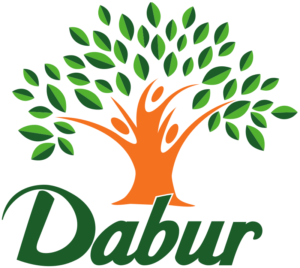
Let’s have a look at the SWOT analysis of Dabur. But before that, we must know about the Dabur company.
Dabur Company was an Ayurvedic company. It entered into the food industry with the introduction of Dabur Real Juices. Juices are now available in sixteen different flavors. The most selling flavors are pineapple, orange, apple, and mixed fruit. Dabur Real Activ fruit juices are sugar-free fruit-based concentrates.

Dabur Company Profile
| Legal Name | Dabur |
| Founded | 1884 |
| Global Employee | 5k-10k |
| Headquarters | Ghaziabad, Uttar Pradesh, India |
| Industry | Consumer Packaged Goods |
| Market Cap* | $13.4B |
| CEO | Mohit Malhotra |
| Website | dabur.com |
Dabur: An Overview
Dabur India was founded by SK Burman in 1884 at Ghaziabad, U.P. It is mainly a part of the FMCG group and manufacturer of ayurvedic products and herbal commodities. Dabur India is well-known for its marketing strategy. It has a legacy of 135 years and a product range of 250+ ayurvedic and herbal items.
Dabur holds a huge share of the Indian market. Dabur India Ltd receives 60% of its revenue from herbal patron commodities, 11% from the food enterprise, and the rest from the worldwide enterprise units. Dabur is a globally recognized company and has extended its branches to over 100 countries. Dabur receives about 27% of its total revenue from foreign enterprise units.
SWOT Analysis of Dabur
Strengths of Dabur Company
#1. Low Prices: Dabur products are affordable. The cost of production is low and so the market price is also quite lower than its competitors.
#2. E-Commerce Website: Dabur has an e-commerce website that attracts many customers to its business. Tech-savvy consumers can buy the dabur commodities online.
#3. Market Share: Dabur India Ltd. has a huge market share in India and is expected to grow shortly.
#4. National Presence: Since 1884 the Dabur Company has been maintaining its standard and quality in India. It has been successful in building trust among the Indians. Dabur is now a household name within India.
#5. Diverse Portfolio: Dabur is not limited to Ayurvedic products but also covers fruit juices, food, and herbal commodities.
#6. Reputation: Dabur India ranks fourth position in the FMCG sector. With more than 100 years of experience, it has extended its footsteps to more than 50 countries around the world.
Weaknesses of Dabur Company
#1. Rules & Regulations: The Government of India applies some rules and regulations on food quality. Dabur India Ltd. is no exception to these strict rules.
#2. Impact of International Market: Dabur’s product Real Fruit Juice is costlier than international soft drinks including Pepsi or Coca-Cola.
#3. Indian Habits: In Western countries, fruit juices are consumed during breakfast. But in India, fruit juice is served only to the guests. So, the rate of purchase of fruit juice in India is lower than in foreign countries.
#4. Duplicacy: Many unbranded companies sell duplicate products under the name of Dabur.
#5. International Competition: Dabur Company faces tough competition from both national and international products.
#6. Ayurvedic Products: The share of Ayurvedic medicinal products is lesser than the share of allopathy medicines. Ayurvedic medicines take time to heal a patient. Besides, the medicinal companies recommend allopathy rather than Ayurveda.
Opportunities of Dabur Company
#1. Government Support: Dabur company as a domestic company gets a lot of support from the Government. Moreover, the food processing company gets a lot of concessions.
#2. Foreign Market: Dabur company is the largest manufacturer of Ayurvedic medicine. Its export quantities are expected to increase in the foreign market.
#3. Affiliation with Yoga: Dabur’s ayurvedic products have an affiliation with yoga and Hinduism. As the demand for yoga and Hinduism is increasing worldwide, the Dabur company has the opportunity to penetrate in the international market more.
#4. Health Campaigns: People are eating fast food and junk food due to modernization. As a result, they are facing health issues. Now people are inclined towards healthy Ayurvedic food supplements for better health.
Threats of Dabur Company
#1. Multinational Companies: Dabur company faces challenges from MNCs like ITC, Patanjali, and HUL.
#2. Local companies: Many local companies are entering the market as the demand for Ayurvedic products is increasing. These local companies are posing a threat to the Dabur company.
#3. Various Products: Dabur company has a diverse portfolio as it manufactures a variety of ayurvedic products and food supplements. Many unbranded companies are selling Ayurvedic products under the name of Dabur.
Conclusion
So, we can conclude that Dabur India Ltd. is one of the largest manufacturers of Ayurvedic medicinal products and herbal commodities. SWOT analysis of Dabur reveals the external and internal factors that impact the company.






